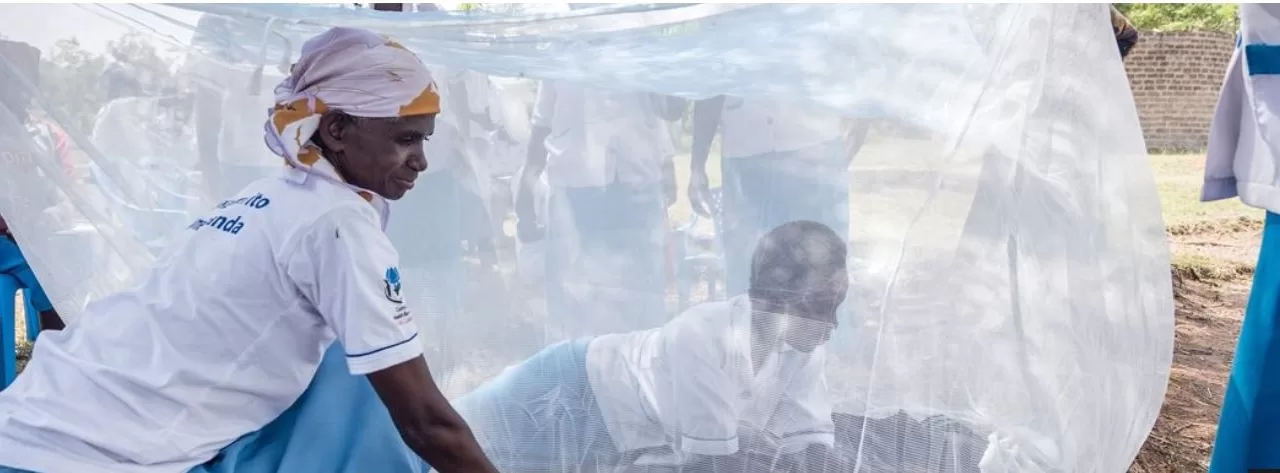Addis Ababa, Ethiopia – Africa’s battle against malaria is facing significant setbacks, with officials and experts warning that progress is ‘in jeopardy’ due to a mix of natural and man-made challenges. This urgent concern was highlighted during a high-level briefing held on Sunday on the sidelines of the 38th African Union (AU) Summit at the AU headquarters in Addis Ababa.
Duma Boko, President of Botswana and incoming chair of the African Leaders Malaria Alliance (ALMA), stressed that Africa’s positive progress in the fight against malaria has been severely hampered by various factors, including insufficient financing, climate change, biological threats, and humanitarian crises.
‘A Perfect Storm of Threats’
“The task before us is both challenging and urgent. Our progress has stopped, and the hard truth is that we are not on track. A perfect storm of threats, including insufficient resources, climate change, biological risks, and humanitarian crises, threatens to undermine our efforts,” Boko stated.
He noted that as malaria outbreaks rise across the continent, the Southern Africa region is bracing for an upsurge due to heavy rainfall creating mosquito breeding sites. Boko called for urgent mobilization of domestic resources, including the use of emergency funds and increased health budget allocations.
Malaria Report Signals Stagnation
A newly released report on the state of malaria in Africa revealed that despite significant progress—preventing 1.8 billion malaria cases and saving 11.9 million lives since 2000—the continent’s fight against the disease has stalled. The report warned that interim malaria reduction targets for 2025 are slipping out of reach, putting the goal of eliminating malaria by 2030 in jeopardy.
Challenges Hindering Malaria Elimination
Chikwe Ihekweazu, the World Health Organization (WHO) acting regional director for Africa, highlighted key obstacles obstructing malaria elimination efforts. These include fragile health systems, weak surveillance mechanisms, chronic funding shortfalls, and growing resistance to anti-malarial drugs.
“Eleven African countries bear about two-thirds of the world’s malaria burden. The burden of malaria and the challenges of addressing it are most acute in Africa,” Ihekweazu said.
Despite these challenges, experts and policymakers at the briefing praised Egypt’s success in combating malaria. Egypt, recently recognized by the WHO as malaria-free, achieved a significant public health milestone for a country with over 100 million inhabitants.
Urgent Call for Renewed Action
The high-level briefing concluded with a call for African nations to ramp up their commitment to malaria elimination. Experts stressed the need for increased investment, innovative strategies, and stronger political will to ensure the continent does not lose the progress made over the past two decades.
Disclaimer: This article is based on reports from official sources and experts in the field. Readers are advised to refer to the latest updates from health authorities for more accurate and detailed information on malaria control efforts.











